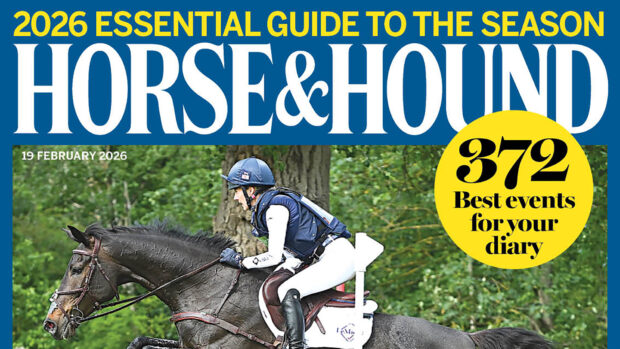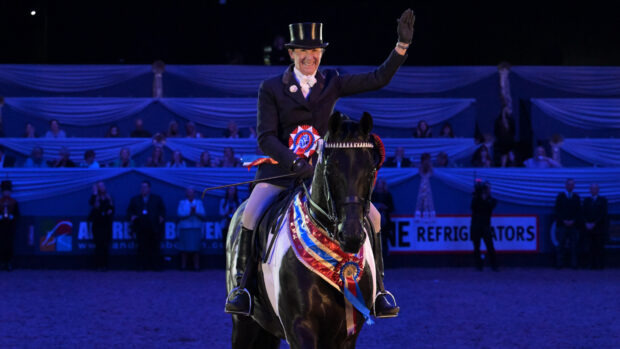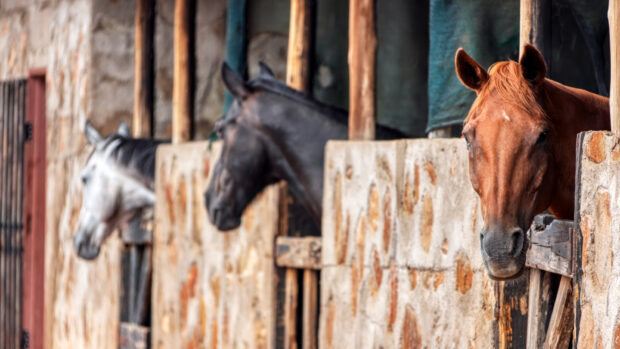Six-monthly flu vaccinations will be mandatory for all horses competing with British Dressage (BD) from December.
The new rule, which has been met with a mixed response, is among several key updates to the BD members’ handbook that will come into force on 1 December.
National competitions will now follow the FEI lead on blood, and new guidelines on hyperflexion have also been added to the updated rulebook.
BD has also made it a requirement that all horses must be microchipped. While this is spelt out in the organisation’s rulebook, it actually applies to all horse owners by law — regardless of whether their equines compete or not. The law came into effect on 1 October 2018, requiring all horses to be microchipped with a two-year implementation period and the deadlines are 1 October for England, 12 February 2021 for Wales and 28 March 2021 for Scotland.
A statement from BD said the organisation has been acting on advice and evidence from those on the British Equestrian Federation’s (BEF) high health steering group, the equine infectious disease advisory group and the Animal Health Trust (AHT) regarding flu.
“As a national governing body, the welfare of equines competing under our rules has to remain paramount at all times – and it’s our responsibility, along with every horse owner, to help negate the spread of this virus,” said the statement, adding the number of equine influenza cases peaked in July.
“We took the decision not to change our vaccination requirements mid-season during the initial outbreak, instead strongly recommending that a six-month booster be given, while continually monitoring the situation based on the latest updates from the AHT.”
Six-monthly boosters have been compulsory for horses competing under FEI rules for some time and for those attending British Eventing events since February. The British Horseracing Authority introduced a temporary rule in the spring, requiring all horses to have had a booster within six months, which was changed to nine months on 1 May. This applies to horses racing both under Rules and at point-to-points.
“A priority for the BEF high health steering group, which was set up at the start of this year and is chaired by Dr Jane Nixon, has been driving harmonisation of vaccination rules across the federation,” added the BD statement.
“All member bodies will be required to follow the same protocol, so that the intervals for first three vaccinations are all aligned, whatever the discipline, with a minimum requirement of annual vaccinations and six-monthly boosters strongly advised.
“While this is a positive step to improve vaccination rates across the equine population, as a high profile Olympic sport we believe it is important to lead by example, based on the expert veterinary advice on offer, by mandating six-monthly boosters as a requirement of competing with British Dressage from 1 December 2019 onwards.”
Article continues below…
You might also be interested in:
The statement added a number of venues already insist on six-month boosters and this new rule will provide a “consistent approach” with a “clear policy all members can follow”.
“We appreciate that this is a significant move, so we wanted to ensure that we considered the advice provided by veterinary experts before amending our competition rules,” added the statement.
“All of the evidence points to the efficacy of vaccinations reducing after six months, hence the decision taken by the British Dressage board of directors to act accordingly.”
Dr Richard Newton, director of epidemiology and disease surveillance at the AHT, said there is “strong scientific evidence” from both previous outbreak investigations and mathematical modelling projects to support the understanding that herd immunity will be enhanced by adopting six-monthly boosters, as opposed to annual boosters.
“We believe it is through the actions of responsible horse owners who have heeded the advice to vaccinate their animals in light of the increased infectious risk that has contributed to the decline in the number of outbreaks we are seeing now,” said Dr Newton, adding owners should remain vigilant as flu is still a threat.
Vet David Rendle, European specialist in equine internal medicine and British Equine Veterinary Association council member, told H&H reactions to the vaccine are very rare.
“Some stiffness or soreness is not unexpected and indicates a response to vaccination the same as people frequently get. This isn’t generally an adverse effect, it’s normal,” he said, adding if owners are concerned, they should of course contact their vet.
For all the latest news analysis, competition reports, interviews, features and much more, don’t miss Horse & Hound magazine, on sale every Thursday




